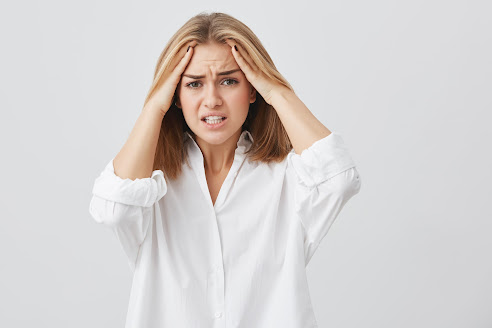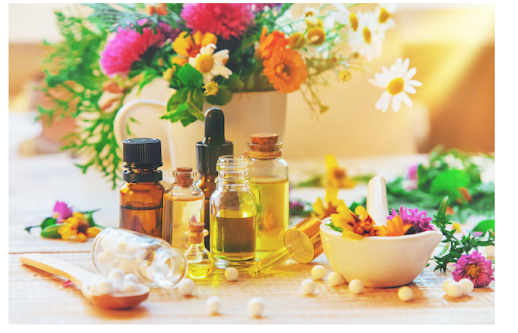Homeopathy for Anxiety, Fear, and Panic Attacks: How It Works
Roughly 56 million Indians suffer from depression, and nearly 38 million experience some form of anxiety disorder. India has one of the highest cases of mental illnesses all over the world. The National Mental Health Survey in 2016 found that nearly 14 per cent of India's population found the need for active mental health interventions.
What Are Anxiety Disorders?
Anxiety is a very normal emotion. It is your
brain’s way of responding to stress and informing you of potential dangers
ahead.
Everyone feels anxious every now and then. For
example, you might worry when faced with a problem at your office, before
making an important decision or even before taking a test.
Occasional anxiety is acceptable, but anxiety
disorders are different. They are a number of mental illnesses that bring upon
constant and overwhelming anxiety and fear.
Excessive anxiety can sometimes get so severe that you might avoid family
get-togethers, work, school, and other social situations that might trigger or
worsen your symptoms.
With proper treatment, many people with anxiety
disorders can manage their emotions.
Types of Anxiety Disorders
There are several types of anxiety
disorders:
·
Generalized anxiety disorder:
When suffering from generalized anxiety disorder (GAD), you feel
excessively tensed and unrealistically worried with almost little or no
comprehensible reason.
·
Panic disorder:
In the case of panic disorder, you feel a sudden and intense fear that
brings on a panic attack. During a panic attack, you may start sweating
out of nowhere, have chest pains, and have a pounding heartbeat. Sometimes you might
even feel like you are choking or having a heart attack.
·
Social anxiety disorder:
Social anxiety, also known as social phobia, is when you feel
overwhelmingly worried and self-conscious about social situations that actually
occur on a daily basis. You start obsessively worrying about others judging you
or being embarrassed or ridiculed by them.
·
Specific phobias:
Phobia refers to an intense fear of a specific situation or objects like
the fear of heights or flying. The fear normally goes beyond what is
appropriate and may cause you to avoid situations perceived as ordinary by
others.
·
Agoraphobia:
In agoraphobia, you have an intense fear of being in a place where it
seems hard to escape or get help in case of an emergency. For example, you might
panic or feel anxious when on an airplane, in closed and compact spaces, on public
transportation, or standing in line with a crowd.
·
Separation anxiety:
Little kids aren’t the only ones who feel anxious or scared when a loved one
leaves. Anyone can get separation anxiety disorder. If you do, you will find
yourself feeling very anxious or fearful when a person close to you leaves your
sight. You’ll always worry that something bad may happen to your loved ones. Contrary
to this you find it rather peaceful when they are around you.
·
Selective mutism:
This is a type of social anxiety usually found in kids which can be suspected
when they talk normally with their family and don’t speak in public, like at
school. This is also found in elders but it is mostly children who experience
this and eventually grow out of it over the years.
·
Medication-induced anxiety
disorder: Using some particular medications or illegal
drugs, or experiencing a withdrawal from certain drugs, can be held responsible
for triggering symptoms of anxiety disorder, leading to a medication-induced
anxiety disorder
Anxiety Disorder Symptoms
The main symptom of any form of anxiety
disorder is excessive fear or worry. They can go as far as making it hard
to breathe, stay still, sleep, and concentrate. Your specific symptoms will depend
on the type of anxiety disorder you have but the common anxiety symptoms
are:
•
Feelings of panic, doom, or
danger
•
Panic, fear, uneasiness, and
inability to concentrate
•
Feeling cold, sweaty, a numbness,
or tingling in hands or feet
•
Intensely or obsessively
avoiding objects or places associated with the fear
•
Sleep problems, tense muscles
and difficulty staying calm and still
•
Breathing faster and at an
unusually fast pace (hyperventilation)
•
Dizziness and shortness of
breath
•
Thinking about a problem repeatedly
and unable to stop the train of thoughts
•
Heart palpitations, dry mouth
and nausea
Causes of Anxiety Disorder
Some causes of anxiety disorders are:
·
Brain chemistry: According to
some research, anxiety disorders can be linked to faulty circuits in the brain
that controls our fear and emotions.
·
Genetics: You have a higher
chance of suffering from anxiety disorder if it runs in your family.
·
Drug withdrawal or misuse:
Certain drugs can be helpful in hiding or decreasing certain anxiety symptoms.
Anxiety disorder is often found in people who also exhibit alcohol and
substance use.
·
Medical conditions: Some lung,
heart and thyroid conditions can trigger symptoms similar to those seen in anxiety
disorders or worsen the already present anxiety symptoms.
·
Environmental stress: This
refers to stressful events you have witnessed or lived through. Such stressful
events often linked to anxiety disorders include childhood abuse, neglect death
of a loved one, being attacked or seeing violence.
Homoeopathic remedies
·
Aconite
Aconite is a recommended homeopathy medicine
in cases of intense, sudden anxiety, panic, or fear. Panic could be associated
with past trauma. Symptoms of this type of panic include dry mouth, dry skin,
and a fast heartbeat.
·
Argentum Nitricum
At times, Argentum Nitricum is recommended for
people with anxiety that happens because of the uncertainty of things. It
includes claustrophobia, fear of heights, hypochondria or fear of everyday
things. Uncertainty-based anxiety could go hand in hand with digestive
disturbances like diarrhoea, and sweets cravings.
·
Pulsatilla
This is for people who experience childlike
anxiety (irrespective of their age) and might need a lot of reassurance and support
from others in order to feel better.
·
Arsenicum Album
Arsenicum Album is a recommended medicine for
those with anxiety due to fear of darkness, loneliness, or being imperfect.
People with this type of anxiety fear being alone and may relieve anxiety by
controlling or criticizing those around them which factors in their fear of
being imperfect and projecting it on others, eventually isolating them from
others in some cases. They may also feel cold more often.
·
Silica
Silica is for people who have a fear when it
comes to experiencing new things, getting a lot of attention, and talking in
front of people. There is a possibility that they might become workaholics to
soothe their fears.
·
Calcarea Carbonica
Those who are recommended Calcarea Carbonica may
be similar to those who would find Arsenicum beneficial to their case. They
develop a fear of breaking out of any safe and systemic routine. In this case,
the anxiety worsens when plans are changed, and they show difficulty in “going
with the flow” as they need it all figured out in advance to be mentally
prepared for it.
·
Phosphorus
Homeopathic Phosphorus is believed to be an effective
homeopathic
treatment for anxiety. When
anxious or furious, their thoughts get scattered and they have a difficult time
focusing on things or even getting things done. Their anxiety can be associated
with a need for approval in social circles or from romantic partners.
·
Ignatia
Homoeopathic doctors recommend Ignatia for
those experiencing anxiety brought on by grief or loss. People who match this
description are often very sensitive by nature and prone to mood swings and
suddenly moving from laughter to tears. It is also recommended for those with depression.
·
Lycopodium
As with Gelsemium, Lycopodium is prescribed to
people with a lack of self-confidence. Though they fear speaking in public and
have stage fright, they manage to hide it well. They might cover it up by
talking loudly or too frequently.
·
Kali Arsenicum
Kali Arsenicum is for anxiety that is related
to health where the conditions include hypochondria, excessive grooming, and
even fear of heart attacks. People with health-based anxiety may experience
racing thoughts and difficulty sleeping. They might also fear death or dying.
They are prone to feeling cold and more vulnerable to experiencing panic
attacks.
·
Kali Phophoricum
This is suggested to those who are vulnerable
to stress or becoming easily overwhelmed. Their anxiety stems from having too
much to do or very daunting ambitions. Their anxiety tends to take a mental as well
as physical toll on them as well.
A lot of people suffer from anxiety, but there
is nothing wrong with it as long as you have it under control. It only becomes
a threat when it goes undiagnosed or the patient receives improper treatment.
Make sure to have your symptoms checked out if you suspect anxiety as it is one
of those conditions that are better contained that ignored.



.png)
Comments
Post a Comment